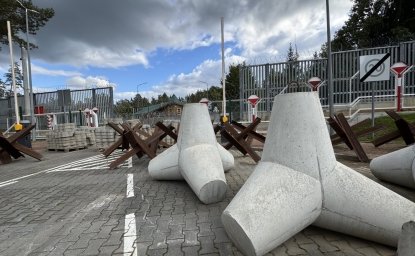After a quarter-century of market reform in China, many workers still go unpaid and unprotected. Wilson Center Fellow Ching Kwan Lee, an associate professor of sociology at the University of Michigan, is researching the politics, protests, and labor conditions of Chinese workers, particularly those most affected in the new economy: state-enterprise workers and young migrants.
China passed a labor law in 1995 detailing many work provisions, including minimum wage, maximum working hours, and pensions. Local governments are responsible for implementing the law, Lee explained, but in many provinces, they are also business partners with foreign and private manufacturers. And, since the judiciary is dependent on the local government's budget, judges are rarely impartial and often do not side with workers when their rights are violated.
The unemployment rate in China is high—estimated at 12 percent—and many workers are paid low wages, if paid at all. China lost the economic safety net it had under communism. Full employment and guaranteed pensions are no longer the reality. When state factories went bankrupt, whole communities became impoverished. Unemployment, therefore, is not an individual, but a familial and communal problem.
Disgruntled workers can and do resort to strikes or protests. When workers restrict their protests to economic demands, Lee said, the government generally grants their requests to avoid mass protest. But when workers make political demands, critiquing the Communist Party or complaining about corruption, a severe crackdown goes into effect. Protest leaders are jailed and prosecuted as criminals and their families are harassed.
"The Chinese government wants rule by law, not rule of law," Lee said. Whereas the U.S. government is constrained by law, the Chinese government instead uses the law to govern society. Lee said the government has not yet built an adequate and effective legal support structure to protect workers. Instead, laws often are arbitrarily implemented and seldom enforced.
In China, young migrants are peasants who move from rural to urban areas to work in factories. Unable to get permanent residence in the city, most of them eventually return to their villages. Unprotected by China's labor law, many of them work without contracts and are owed back wages. "China has a long way to go toward having a true market economy," said Lee.
To understand the people she was studying, while working on her dissertation in 1992, Lee became a full-time factory worker for six months in plants in Hong Kong and then Shenzhen. With the consent of management, she worked alongside factory workers to make household electronics for export. There she could observe and experience how workers were treated, interact with workers and management, and learn about overall life at the factory.
"It was hard work and in [mainland]China, particularly, there were long hours and heavy discipline."
Although the annual economic growth rate increased by more than 10 percent over the past two decades, Lee maintains social stability may be threatened if economic growth is stalled in the future and if the legal and political systems fail to respond.
"People think China is a liberal and open society because of globalization and capitalism," she said. "But China is not free. It's still a police state."
Related Links



